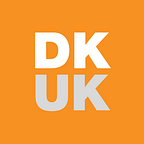Volunteer Spotlight: Michelle Lee
This month’s volunteer spotlight is on Michelle Lee, who has been a long-term member of our community, originally across the pond in America, and currently as part of our Ethics Committee.
Please tell us a bit about yourself and your data background
My name is Michelle, and I’ve been a volunteer with DataKind since 2014.
I am currently finishing up my PhD in Computer Science & Technology at the University of Cambridge, focusing on algorithmic fairness in machine learning systems. I also work part-time in a Big Four company as a Senior Manager in AI and data science risk analytics.
What is your daily data work like and what tools do you use?
As a part of my PhD thesis, I’m working on defining a taxonomy of uncertainties in machine learning development lifecycle and how they affect fairness considerations. For example, we don’t know whether someone who was denied a loan would have repaid or how someone who was not hired would have performed. These uncertainties tend to be greater in populations that have been historically excluded and marginalised.
I typically use python and R, but I’ve also coded in Java, C++, Scala, etc.
What do you wish you’d known when you started to get into data?
One of the most useful courses I took in data was at Stanford called Data Mining and Analysis (STATS 202). I didn’t quite appreciate at the time how important the strong foundation in statistics would be when I was going through all the difficult problem sets, but now I refer back to it all the time.
What is a data project that inspires you?
I led a pro bono project for Depaul UK through my work. One of Depaul’s key programmes is Nightstop, which provides safe emergency accommodation for homeless youths in the homes of the charity’s volunteers. We created a comprehensive database of the prevalence of homelessness around the UK by combining government data, Depaul’s own data, and information from charity websites.
Then, using techniques such as geospatial analytics, we built a predictive model to score the feasibility of expansion into each local authority and presented the analysis using an interactive heat map. This helped Depaul focus its services where there is the greatest need, and will make a big difference for young people with no financial means to find housing.
Did you always think you were going to go into data? If not, what else?
I could have gone into a number of fields because my coursework was really inter-disciplinary, spanning statistics, computer science, behavioural economics, public policy, cognitive sciences, etc. During my undergrad degree, I did summer internships in academia, finance, and technology, and I decided none of those is the right path for me. I started my career in strategy consulting to gain exposure into different industries. I realised the combination of my technical skills and soft skills is best suited for building data-driven solutions for clients.
What drew you to volunteer with DataKind UK?
I volunteered with DataKind US straight out of my undergrad degree in 2014. At the time, my role in strategy consulting didn’t always give me opportunities to work with data and complex algorithms. I joined a DataCorps project with the Laura and John Arnold Foundation to mine large criminal justice datasets, using modern machine learning algorithms and predictive analytics to find previously unknown correlations and patterns to understand the characteristics of repeat offenders.
It was very intensive because I had to travel from my home base in Boston to NYC every Sunday to work with my team, but it was worth every minute. I learned a lot working with fellow data scientists with much more experience, and this project propelled my career in data science more than anything else in my career thus far. When I moved to London in 2016, I immediately got involved with the UK chapter, fulfilling every role from Data Ambassador to committee member to UK Chapter Lead.
What’s surprised you most about your volunteering experience?
When I started, I didn’t realise the extent to which my volunteering experience would inform my day job and vice versa. Many of my project ideas came from private client work. For example, the Depaul project on forecasting homelessness was inspired by a similar model I built for an ATM service provider to forecast transaction volumes. Similarly, some volunteer work inspired my client proposals.
I worked as a Data Ambassador on a DataDive project to forecast future demand for elderly care in UK local authorities, and I proposed and sold a similar project in the US for a care home investor. It is exciting to see the possibilities in data science across both private and third sectors.
Is there a resource you’d recommend to the community?
- An Introduction to Statistical Learning
- And the Practitioner’s Guide to Data Ethics that came out of our EthicsDive
Tell us something completely non-data-related about yourself!
I’m a part of the Varsity Blind Wine Tasting team at Cambridge. We won our annual match against Oxford this year, which is featured in a 67 Pall Mall TV documentary.
If you’re curious about becoming a volunteer with DataKind UK, please take a look at our volunteering page!
